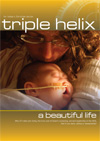Philippa Taylor assesses the costs of screening for Down's.
In 1992 it was predicted that no more than 60% of all women would take up antenatal screening for Down's syndrome and, with more older mothers giving birth, there would be an increase in the number of affected births. (1) How wrong this prediction was.
It underestimated the future power and effectiveness of new screening techniques. The prediction that more older mothers would conceive was indeed correct but the annual number of children born with Down's syndrome has remained fairly steady (and very low) because the numbers of babies aborted with Down's has steadily increased.
A recent parliamentary question by Fiona Bruce MP elicited the information from the government that the cost to the NHS to diagnose and screen for Down's syndrome in England and Wales each year has reached approximately £30 million. (2) Some of these costs are spent on women who, following diagnosis of Down's syndrome for their baby, choose to continue their pregnancy up until birth. These costs total £1.37 million. Therefore the total cost to the NHS for screening pregnant women for babies with Down's syndrome, who subsequently have an abortion, is approximately £28.5 million per year.
One striking figure is that part of the £30 million is actually spent on the screening and subsequent loss of healthy fetuses: it is estimated that the 'cost of healthy fetal loss' is £100,000, which will primarily be babies without Down's syndrome who die because of spontaneous miscarriage after amniocentesis or chorionic villus sampling (CVS).
Another striking figure is that while the annual cost of screening ('searching' is perhaps a more appropriate word) for any baby that might have Down's syndrome is £30 million, once they have been 'found' it is then cheaper to abort them than allow them to be born. It costs around £0.5 million to screen and abort babies with Down's syndrome each year, compared to a total cost of £1 million screening and bringing to live birth the small numbers not aborted.
No wonder, from a pure cost basis, that in 2001 the UK National Screening Committee advised that all pregnant mothers should be offered one of the available screening tests for Down's syndrome. Sadly, it is unsurprising that so few babies with Down's syndrome make it safely through the screening process.
92% of mothers who receive an antenatal diagnosis of Down's syndrome have an abortion, a proportion that has been constant throughout the period 1989-2008. 3Year on year antenatal screening has achieved higher rates of correct predictions and higher coverage, which will only continue as screening tests become cheaper and more sensitive.
Somewhat ironically, the same day that the Government published figures for the cost of screening for babies with Down's syndrome, the BBC reported that an even more accurate test for Down's syndrome, which can be given even earlier in pregnancy than current checks, has now been developed. (4)
To illustrate in another way the effect that this screening has had, if there had not been abortions of babies with Down's syndrome between 1989-91 and 2005-7, then the increase in the average age of mothers would have caused a 48% increase in births of babies with Down's syndrome. (5)
One of the consequences of so few births of babies with Down's syndrome is less incentive and demand for research into Down's syndrome (nor support or networks, but that is another story). While £30 million is spent on screening for babies with Down's syndrome, less than £2 million is spent on research for those that survive this screening process. These starkly contrasting figures came out of another question tabled by Fiona Bruce MP:
'To ask the Secretary of State for Health how much the Government spends annually on research into Down's syndrome.'
'In 2012-13, the Department's National Institute for Health Research (NIHR) spent £1.2 million on research relating to Down's syndrome through research programmes and research training awards. Total spend by the NIHR on research relating to Down's syndrome is higher than this because expenditure by the NIHR Clinical Research Network (CRN) on this topic cannot be disaggregated from total CRN expenditure. In 2012-13 the Medical Research Council spent £564,000 on research into Down's syndrome.' (6)
It is one matter to state all of this in abstract numbers and large sums of money. But clearly it is not just about money, it is also about individual lives. What do mothers who go through the screening process say? Is it really an unbiased 'choice'? What impact does screening have on family members? And on society?
As well as asking some probing parliamentary questions on this issue, Fiona Bruce MP is Chair of a Parliamentary Inquiry into Abortion on the Grounds of Disability. (7) This Inquiry has heard oral evidence from a number of people who either have Down's syndrome themselves, or who are parents of children with Down's syndrome or who are involved in running disability support groups. (8) Here are a few interesting quotes from several witnesses from one evidence taking session:
'I have heard it anecdotally that some obstetricians and gynecologists are saying to their patients: "…once we've discovered it has a fetal abnormality...if you insist on carrying on with the pregnancy, I won't treat you anymore".'
'There should be a requirement for at least a week's thinking time, because we still hear examples of somebody phoning up a mother, with a diagnosis of Down's syndrome and saying, "we've booked you in tomorrow for a termination". We still hear that. Well, that's absolutely appalling and it doesn't give people time to think at all.'
'I do know women aren't being given balanced information at the point of diagnosis in order to make informed choices, and are left with little or no support or counselling during testing, after diagnosis, before termination, after termination, if that's what they choose…Worse still, even after a decision to continue with a pregnancy, couples are being asked if they are sure at each scan or medical appointment, and are being reminded that a late termination can be arranged. I know families that have had to insist that notes are written across the top, a large banner, "please do not ask me any more about this".'
'The assumption is, if you get that diagnosis, you're going to terminate your pregnancy, and that's where everything is being pushed, in terms of information, in terms of support. You get plenty of support around a termination. There isn't other support.'
'I fear it's more a question of perceived cost or eugenics, in a society that stigmatises disability, and with support networks ever decreasing.'
These are not one off experiences either, as an article in the Daily Mail, again in the same week, illustrated. One mother said:
'The clinic called to confirm that our baby had Down's syndrome, then immediately asked: "Do you want us to look into organising a termination?" … at the hospital, the doctors wouldn't let the subject of an abortion drop, even after we made our wishes clear. It felt like water torture – there was a constant drip-drip-drip of negativity at every consultation or scan. One doctor told us: "Your lives will never be your own." Another said: "Some people will feel you're being selfish by having this child." Yet another: "Your other child will suffer as a result of this." …If I'd been a less strong woman, I might have been swayed.' (9)
The cost to society from paying the NHS to screen out 92% of babies that have Down's syndrome is, of course, far more than just monetary. The last words here should go to the mother of two daughters, one of whom, Natty, has Down's syndrome:
'Natty is six, an ambassador…She puts back far more into society than she takes from it, as she entertains, laughs, sings, dances, jokes, brings people together, brings family together...She has made me a better person. 'I found this written in a book in (her elder sister's) bedroom. I didn't know she'd written it:
'"To Natty, I love you so much and you're the best sister in the world and so precious to me. You're so important to me and if you weren't in this world my life wouldn't be the same and that would be terrible. I love you so very, very much and you mean everything to me. Your sister, Mia".'
And we are paying £30 million a year to remove such children from our society.
Philippa Taylor is CMF Head of Public Policy.
































